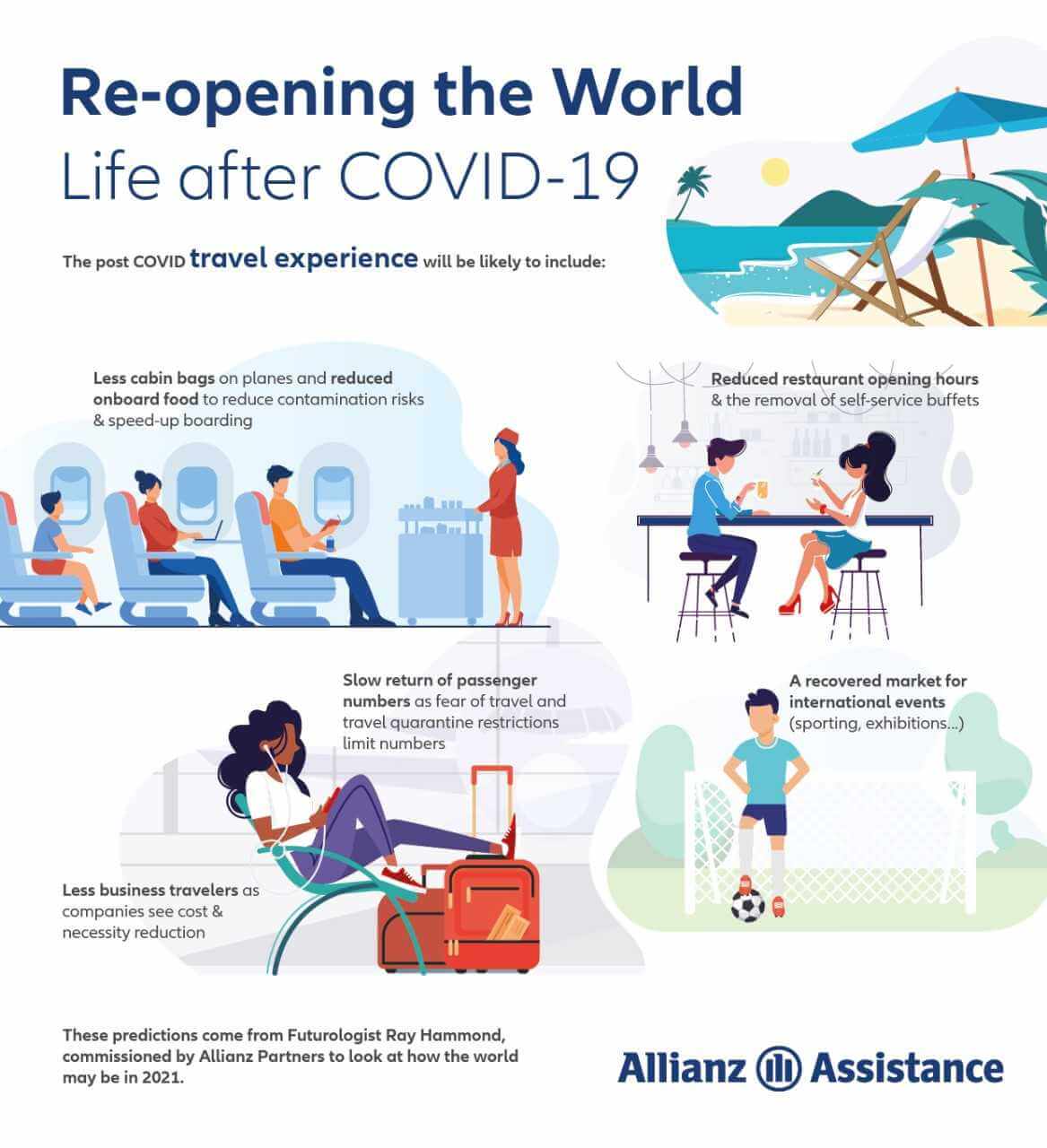Changing industries: the overall travel experience
It has become apparent that COVID-19 has been a real turning point for the travel industry; airplanes remaining grounded, train services reduced, cruise ships unable to dock because of infected passengers and restaurants and hotels shutting their doors due to the risk to the public. The post-pandemic period will be met with a new era of precaution, with less spontaneity and more protection for people when they are out and about.
There are some key changes in the travel industry that have become apparent as the situation with COVID-19 has progressed. It is predicted that short haul and domestic air travel will be the first to recover. Further changes include adjustments to the way we travel and how we act when we reach our destination, such as:
- Wearing face masks throughout the journey
- Waving goodbye to loved ones outside of the airport
- In some cases, jet bridges to planes will be used as a final “disinfectant tunnel”
- Decrease in cabin baggage to speed up boarding times and reduce contamination risk
- Reduced food and drinks services when on board
Other affected areas of the travel industry
The cruise industry
It is predicted that the cruise industry will be the most affected as there isn’t a clear vision of how cruises can be organised while complying with social distancing rules and, above all, ensuring the quarantine of travellers who contract the virus to avoid contamination.
The hospitality industry
The biggest change we can expect to see in the hospitality industry is enhanced sanitation measures. Restaurants are likely to reopen with shorter hours, for fewer days, with fewer tables and with a reduced menu in many cases.
In the meantime, delivery and take-away orders by smartphone apps will hugely increase. All-inclusive hotel packages are likely to be redesigned to remove buffet-style food and drink delivery to ensure guests receive service at their individual, socially distanced tables. Local excursions are likely to be provided exclusively for individual parties and will inevitably be more expensive.
Business travel
A lot of unessential business travel will be reconsidered, since the pandemic has shown that global project management can be done using video conferencing. Only trade meetings, exhibitions and international sporting events are likely to resume to normal levels in the foreseeable future. This change has caused financial costs along with the reduction of greenhouse gas emissions.
We have experienced several changes in the travel insurance industry already, and this report has highlighted that there are more expected to arise when we are allowed to travel freely again. To discover what changes have been predicted in areas such as mobility, the home and healthcare, download the full report, "Life after COVID-19" by Futurologist for Allianz Partners Ray Hammond, today.



